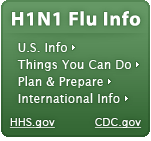Un camino largo y arduo
Fortaleza espiritual, valentía, paciencia y gran fuerza de voluntad son las lecciones que estoy aprendiendo cada día gracias a la vida de mi esposo, gracias a MSA en nuestras vidas.
 Mi esposo, Panayiotis Andreou, tiene 65 años y le diagnositicaron MSA en Noviembre de 2008, luego de más de un año de toda clase de estudios. En un principio, insistió en ignorar la enfermedad e hizo todo tan normalmente como pudo (con mucho esfuerzo). Continuó trabajando, como antes. Fue un camino largo y duro para llegar a encontrar a los médicos adecuados; en Grecia se hizo el diagnóstico sin más, sin información sobre la enfermedad y sin hablar conmigo, su familiar más cercano. Finalmente, después de haber visto a 3 neurólogos infructuosamente, fue Argentina, de donde vengo, donde nos orientaron mejor. En Julio de 2009, el Dr. Gershanik, de la Fundación Favaloro, nos orientó acerca de qué pasos seguir. Aparte del tratamiento tradicional para el Parkinson, hizo un tratamiento con células madre en Alemania, dos veces, y ésto significó cierta mejora al principio. Desafortunadamente, debido a una pérdida de equilibrio (causada por el MSA), tuvo una grave caída en 2011 y permaneció hospitalizado durante 4 meses. Le dieron dosis ENORMES de medicación sedante, y creo firmemente que esto, sumado a la falta de alimentos, intensificó los síntomas causados por la caída y la enfermedad.
Mi esposo, Panayiotis Andreou, tiene 65 años y le diagnositicaron MSA en Noviembre de 2008, luego de más de un año de toda clase de estudios. En un principio, insistió en ignorar la enfermedad e hizo todo tan normalmente como pudo (con mucho esfuerzo). Continuó trabajando, como antes. Fue un camino largo y duro para llegar a encontrar a los médicos adecuados; en Grecia se hizo el diagnóstico sin más, sin información sobre la enfermedad y sin hablar conmigo, su familiar más cercano. Finalmente, después de haber visto a 3 neurólogos infructuosamente, fue Argentina, de donde vengo, donde nos orientaron mejor. En Julio de 2009, el Dr. Gershanik, de la Fundación Favaloro, nos orientó acerca de qué pasos seguir. Aparte del tratamiento tradicional para el Parkinson, hizo un tratamiento con células madre en Alemania, dos veces, y ésto significó cierta mejora al principio. Desafortunadamente, debido a una pérdida de equilibrio (causada por el MSA), tuvo una grave caída en 2011 y permaneció hospitalizado durante 4 meses. Le dieron dosis ENORMES de medicación sedante, y creo firmemente que esto, sumado a la falta de alimentos, intensificó los síntomas causados por la caída y la enfermedad. Resultados: pérdida completa del habla, habilidad para dar sólo unos pasos, sosteniéndose en otra persona, visión disminuida así como también el campo visual. Durante los 19 meses que hace que está de vuelta en la casa, observé un constante y MUY lento deterioro. Sin embargo, podia transmitir gran cantidad de información escribiendo con tarjetas o inclusive previno un accidente con la calefacción central del edificio, despertándome a las 4 de la madrugada y haciéndome llevarlo a la sala de máquinas en el sótano para apagar Dios sabe qué llaves y botones. Su mente de ingeniero, intacta.
Lamentablemente, los últimos dos meses su condición está cambiando más abruptamente: una semana antes de Navidad compré una silla de ruedas. Las últimas dos semanas, los casos de atragantamiento, ahogos son más frecuentes... Tiene una gastrostomía, pero insiste (y lo apoyo) en comer por la boca. Respirar se está volviendo cada vez más difícil. La incontinencia urinaria se ha agravado durante este último mes. Su mente, sin embargo, está muy lúcida y está completamente conciente de su pérdida diaria. Por tal razón, encuentro todo esto muy triste.
Trato de ayudarlo y también a nuestros hijos, de 10 y 8 años, quienes no siempre son capaces de soportar las situaciones y sentimientos. Es la primera vez que contacto un grupo. Creo que me sentía muy sobrecargada por la vida diaria y ni siquiera lo había pensado. Ahora que lo veo sufrir tanto, su cuerpo apagándose, sentí que necesitaba compartir la experiencia.
Escrito por inesrivero, published 3 meses.
Specialised Social Services
Specialised Social Services are instrumental to the empowerment of people living with rare diseases and are essential to the improvement of their well-being and health. This section provides the list of services in Europe, as well as facts, case studies and guidelines for these services. Testimonies of both patients and volunteers can also be found below.
| |
What are Specialised Social Services?
When referring to Specialised Social Services, it is important to remember the different types of services that have been identified at EU level.
The services can be listed as:
The services can be listed as:
- Therapeutic Recreation Programmes (TRP)
- Respite Care Services (RCS)
- Adapted Housing (AH)
- Resource Centres (RC)
- Other habilitation services supporting People Living With Rare Diseases (PLWRD) in their daily life or in their complementary therapeutic procedures, increasing autonomy and quality of life of PLWRD.
Each tab above is dedicated to a type of Specialised Social Service, including a definition of the service, the list of services, a factsheet and case studies or guidelines.
Why are they needed?
Specialised Social Services are instrumental to the empowerment of PLWRD and improvement of their well-being and health. For people living with a rare, chronic and debilitating disease, care should not be restricted to medical and paramedical aspects, but should also take into account social support, inclusion and psychological or educational development. Therapeutic Recreation, Respite Care, Adapted Housing Services and Resource Centres are essential in providing this vital support to PLWRD. The patient and volunteer testimonies available in each section recount the importance and the significant outcomes of these services for patients, families and society at large.
Read our Paper "Rare Diseases: addressing the need for SSS and integration into social policies" to access complete information
What is the role of EURORDIS with respect to Specialised Social Services?
Currently EURORDIS is involved in the European Committee of Experts for Rare Diseases (EUCERD) Joint Action Working for Rare Diseases (2012-2015), as leader of the work package dedicated to Specialised Social Services and Integration of Rare Diseases into Social Policies and Services.
Within the framework of this project, EURORDIS is responsible for mapping the services available in Europe and promoting awareness-raising activities for the purpose of highlighting the need for these services. EURORDIS will also address the issues concerning the training of the staff/volunteers working at these services.
For a complete insight into the need for Specialised Social Services and on the work developed under the EUCERD Joint Action, read EURORDIS Paper "Rare Diseases: addressing the need for SSS and integration into social policies".
Case Studies will be compiled after visiting different experienced and established services. The collection and sharing of Guidelines will be promoted via workshops and the exchange of information among services, authorities and other partners.
Within the framework of this project, EURORDIS is responsible for mapping the services available in Europe and promoting awareness-raising activities for the purpose of highlighting the need for these services. EURORDIS will also address the issues concerning the training of the staff/volunteers working at these services.
For a complete insight into the need for Specialised Social Services and on the work developed under the EUCERD Joint Action, read EURORDIS Paper "Rare Diseases: addressing the need for SSS and integration into social policies".
Case Studies will be compiled after visiting different experienced and established services. The collection and sharing of Guidelines will be promoted via workshops and the exchange of information among services, authorities and other partners.
































No hay comentarios:
Publicar un comentario